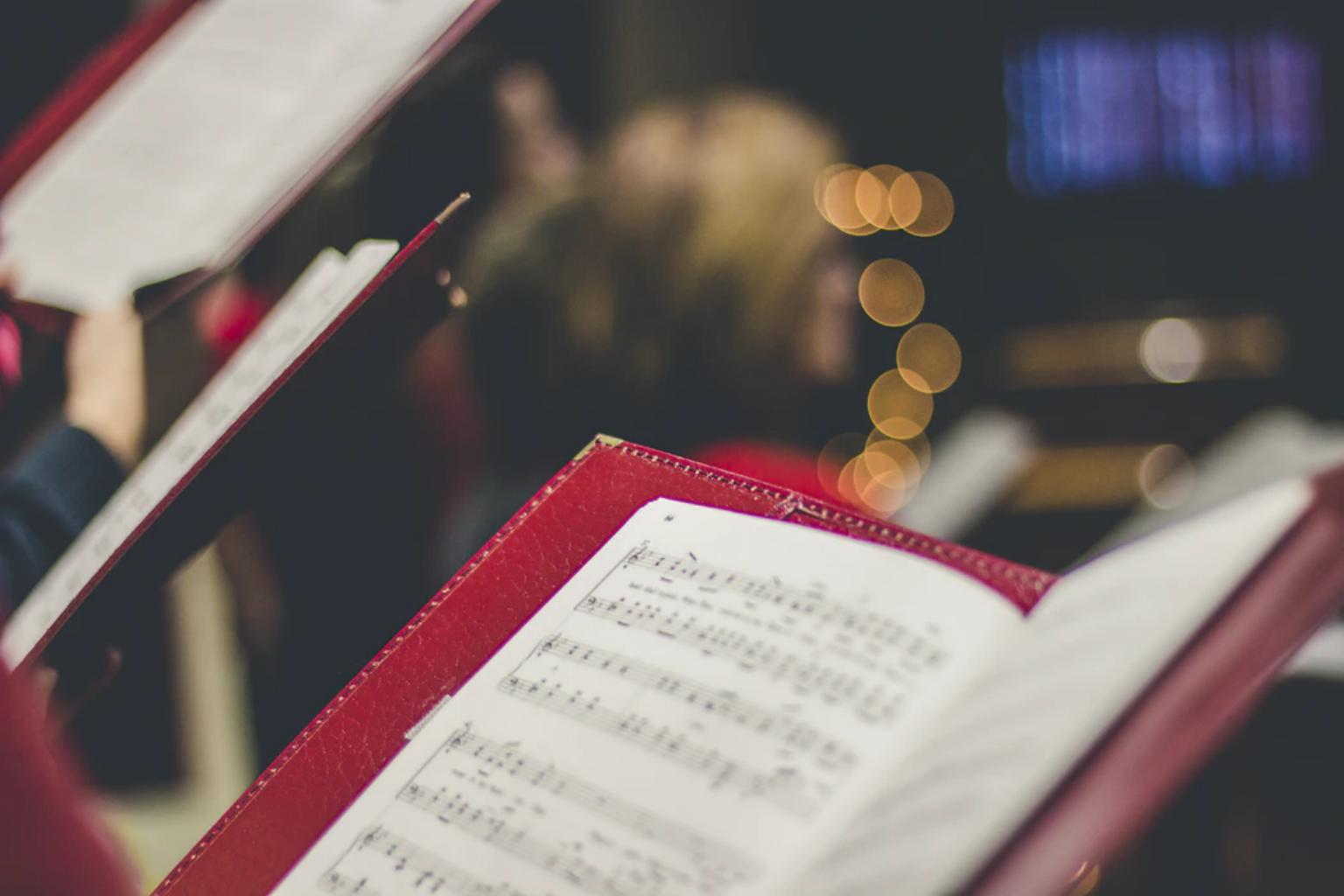Coronavirus: Singing, voice training, speech and drama classes can resume, with safety measures in place
Sign up now: Get ST's newsletters delivered to your inbox

Classes in speech and drama, and for wind and brass instruments will once again buzz with life.
PHOTO: UNSPLASH
Follow topic:
SINGAPORE - Singing and voice training classes can start this week, weeks after they were excluded from the list of activities allowed to resume on June 19 in phase two of Singapore's reopening.
Classes in speech and drama, and for wind and brass instruments will once again buzz with life too.
In an advisory updated on its website last week, the National Arts Council (NAC), which champions the arts, said singing, voice training, speech and drama as well as wind and brass instrument classes can resume from Monday (Aug 3).
However, strict safety measures will have to be put in place to minimise the risk of coronavirus transmission in classes.
Organisers providing voice training, speech and drama and wind and brass instrument classes will have to ensure that these have five or fewer participants, while singing classes can have only one participant.
No more than one group is allowed in each room and all participants should be 2m away from one another at all times.
Attendants should not position themselves directly opposite each other, and when singing, should do so away from each other.
If either is not possible, the distance apart should be more than 2m.
Under the new requirements, masks must be worn unless the activity requires participants to remove them. Where possible, face shields should be worn, even when participants are unmasked.
Instructors may wear face shields instead of masks, but only if they remain stationary while speaking to the group in a classroom setting and keep a safe distance.
The Straits Times understands that the People's Association (PA) has yet to restart its singing classes.
In response to queries from ST, PA said that its community clubs are progressively resuming their programmes and courses.
"For the safety and well-being of residents and trainers, we are reviewing the safe management measures for singing, wind and brass instrument classes," it added.
Some other classes offered by PA include zumba and line dancing classes which have resumed at some PA community clubs.
In March, some PA-organised singing classes were suspended for two weeks, following the emergence of the Safra Jurong coronavirus cluster, which grew to include 47 cases.
Some of these cases had been involved in singing activities and classes conducted by PA at various community clubs.
The NAC advisory said that in wind and brass instrument classes, instructors should continue to wear masks even while singing or humming a passage of music to demonstrate how it should sound when played on instruments.
Participants playing wind instruments are advised to use instruments that are fully intact, and refrain from training practices that involve only parts of the instrument, such as playing with only the lead pipe, to prevent droplet transmission.
The NAC added that for all classes, participants should avoid sharing equipment such as props, microphones and music scores as much as possible.
"All surfaces are to be thoroughly cleaned and disinfected between classes and workshops. Venues should be as well-ventilated as possible," the council added.
Singing teachers ST spoke to were divided over whether this announcement bodes well for the industry.
"We understand safety measures are important but those who opt for physical lessons would still prefer the full experience, without face shields and masks compromising singing acoustics," said Mr Aaron Lim, 42, co-director of Intune Music school.
"The biggest overheads we face are rental and salaries. Subsidies are provided but we are still struggling, and the future is also too uncertain," he added.
For Miss Dionne Lim, 34, the pandemic has allowed her to explore alternatives for learning and teaching singing.
"Emotional connection is very important during these difficult times, so I am grateful that we have continued singing lessons online, rather than have students stop singing altogether," she said.
The vocal instructor added: "While online lessons cannot replace physical lessons, I'm glad I can still continue making music with my students, albeit in a different format."

